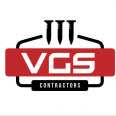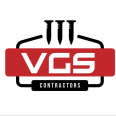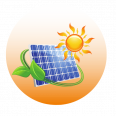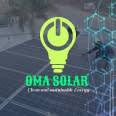Best solar panels specialists in Garsfontein, Gauteng
Top solar panels specialists near you
Browse the best solar panels experts and compare ratings and reviews.
Hire the best solar panels specialist
Search Uptasker for the best solar panels specialists
How can solar panels specialists help me?
Solar panels are fast becoming one of South Africa’s most necessary requirements, due to the fact that this country has one of the most unstable and unreliable power grids in the world. The constant threat of power outages is more than an inconvenience factor, but continual outages can seriously damage our electrical and electronic equipment. Whilst some businesses and homeowners have invested into generators to take over during power outages, others are taking the more permanent step into continuous solar power to generate current electricity. The needs assessment, supply and fitment of these panels is undertaken by a solar panel specialist.
How do solar panels work?
A very concise explanation of how solar panels work is this : Solar panels absorb energy from the sun, creating direct current (DC) electricity. This electricity is fed into what is called a solar inverter, which in turn, converts the current into alternating current (AC) electricity which is then used to power electrical appliances. Solar panels are normally mounted on roofs, but larger arrays may be positioned on the ground and linked to the areas they serve. These panels consist of packaged and connected photovoltaic solar cells which are available in different voltages and wattages and which absorb sunlight and generate solar electricity in commercial, industrial, agricultural and residential applications. “Photovoltaic” refers to the conversion of sunlight into electricity. Solar panels range from 10W up to 320W, although their efficiency depends on the quality of the panels and the atmospheric conditions, and they will rarely actually deliver this output.
What are solar panels made of?
Solar cells are made from crystalline silicon semiconductors or wafers. These are made from the element silicon, a hard and brittle crystalline solid that is the second most abundant element in the Earth's crust after oxygen. A single silicon crystal can be grown and then cut to very thin wafers. This is called a monocrystalline wafer and has the highest purity and efficiency levels. A second type is polycrystalline wafers which are made from pouring molten silicon into a cast, which produces slightly less efficient results but is a cheaper option. The third method of manufacture is thin-film. This is made from extremely thin films of semiconductors which are deposited on glass, plastic or metal. This makes thin-film solar panels flexible and lightweight, but the weight and flexibility will depend on the material on which it is placed. A high-quality and professionally constructed solar panel may be highly functional for up to 25 years, but cheaper materials and construction will obviously not provide this length or efficiency of service. For solar panels to work at their optimum efficacy, they must be kept clean and free of debris such as leaves, dirt and grime, and be placed in a position to be able to absorb the most sunlight.
Brief history of solar panels
The ability of certain materials to generate an electrical charge from exposure to light was first noticed back in 1839, when the very first solar panels were used as a means of measuring light, although the panels were too weak to actually power even the smallest electrical devices. The first commercial continuous production solar panel was created in 1881, efficiently utilizing both sunlight and diffused daylight. Engineering has continuously improved on the first prototypes, and solar panels are now extremely efficient and streamlined, as well as becoming more affordable to a wider population.
Uses for solar energy
Since solar panel systems convert energy from sunlight into electrical current, and are able to store this energy in batteries, they are useful back-up systems during power outages, being able to provide any stored power to a limited number of appliances such as hair dryers, televisions and fridges. One of their main uses at present is in solar water heating systems, and these are becoming more and more familiar sights on residential and commercial roofs. Some swimming pools are aided by solar heating and we are all aware of solar-powered lights which have been around for many years. Solar energy is also widely used in agricultural applications, for instance in solar irrigation where it is used to pump water for livestock and crops, or providing a more reliable and faster method of drying crops and fruits, speeding up the process and thereby minimizing losses due to inclement weather, pest infestations and bird scavenging. There are many more agricultural applications for solar power, too varied to detail here.
How to find the right solar panels specialists
Check their online ratings and customer reviews
Solar power is definitely heading towards becoming one of the major sources of electrical energy across the residential, commercial, industrial and agricultural spheres. Many contractors such as plumbers and electricians are now specialising in this area. Whilst they are not yet abundantly visible via the internet, specific online searches through sites such as Uptasker will speed up the process since this site has the advantage of listing services in geographical areas, enabling you to quickly find the right supplier in your own locality. Be sure to check online ratings and customer reviews, where possible, as these will give you the best indication of customer satisfaction levels. You will also find them through advertisements in home, agricultural and industrial magazines, newspapers and the Yellow Pages. Enquiries through reputable construction companies may yield the names of preferred suppliers. If possible, use word of mouth referrals from people you know and trust who have personally dealt with a solar panels specialist in their own homes or businesses.
Top solar panels specialists tips
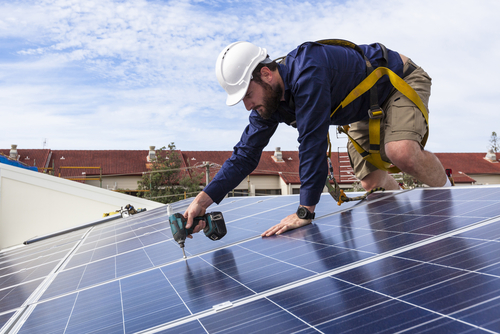
Solar panels are becoming a more affordable and economically sound proposition for many South Africans, both on a residential and business level in order to keep electrical and electronic appliances and machinery operating during power outages, as well as to curtail expensive electricity costs, particularly in the operation of residential hot water geysers. Solar water heating, whilst being a major residential demand at this point, is just the start of further power demands. For more tips, see our solar panels specialists articles.
Read Solar Panels articles

